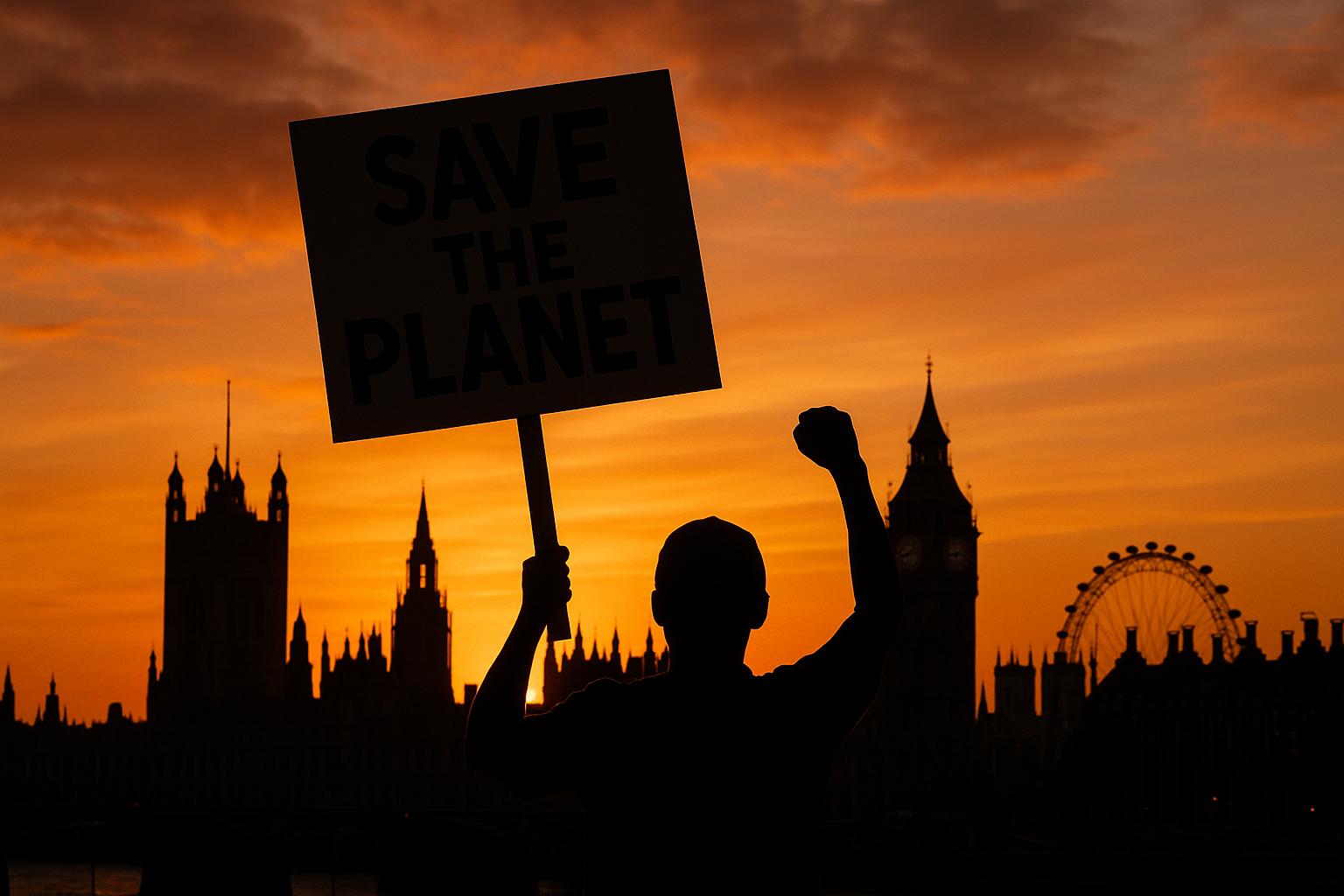As the UK grapples with economic pressures and political opposition, a London conference reveals resilient public support for climate action, contrasting with government and opposition policies on net zero and energy independence.
Amid the UK's ongoing cost of living crisis and a surge in political rhetoric opposing net zero and nature conservation efforts, a London conference on November 4, 2025, highlighted that a significant portion of the UK public still cares deeply about climate and environmental issues. UK Minister Anna Scott addressed attendees, acknowledging how climate initiatives have been "weaponised" politically but emphasised that public concern for the planet remains strong despite these challenges.
This public sentiment contrasts sharply with the political landscape, where opposition voices have increasingly questioned the feasibility of the UK’s 2050 net zero emissions target. Earlier in 2025, opposition Conservative leader Kemi Badenoch criticised the goal as unattainable, linking it to rising energy costs and increased dependence on foreign nations like China. Furthermore, the opposition has made clear its intent to dismantle the foundational Climate Change Act should it win the next general election. Instead of adhering to the net zero target, the party's platform has shifted towards boosting offshore oil and gas drilling, signalling a stark policy departure from previous government commitments.
The current UK government, meanwhile, is pushing ahead with near-complete decarbonisation of the national power grid as part of its interim climate milestones. Civil society and business coalitions have urged Prime Minister Keir Starmer’s administration to produce a new and more ambitious climate action plan within 100 days to comply with legal climate obligations. These groups advocate for a bolder yet fair approach to climate policy that can balance economic and environmental priorities during times of economic hardship.
Adding to the broader context of emissions reduction, international developments such as the adoption of the Argentina Livestock Protocol by the Climate Action Reserve in October 2024 are creating new opportunities to tackle methane emissions from livestock. These international protocols and guidelines could provide valuable frameworks for greenhouse gas accounting and reporting that the UK might consider as it refines its climate strategies.
Despite being caught in the crossfire of political debates and economic pressures, the UK’s commitment to addressing climate change remains a subject of public interest and concern. This suggests that, while net zero ambitions face political headwinds, the underlying public support for climate action and nature conservation is resilient and may influence future policy directions.
📌 Reference Map:
- [1], [2] (carbon-pulse.com) – Paragraph 1
- [3], [4], [5] (carbon-pulse.com) – Paragraph 2
- [7] (carbon-pulse.com) – Paragraph 3
- [6] (carbon-pulse.com) – Paragraph 4
- [1], [2] (carbon-pulse.com) – Paragraph 5
Source: Noah Wire Services
Noah Fact Check Pro
The draft above was created using the information available at the time the story first
emerged. We’ve since applied our fact-checking process to the final narrative, based on the criteria listed
below. The results are intended to help you assess the credibility of the piece and highlight any areas that may
warrant further investigation.
Freshness check
Score:
8
Notes:
The narrative presents recent developments, including Kemi Badenoch's shift away from the 2050 net zero target in March 2025 ([reuters.com](https://www.reuters.com/sustainability/climate-energy/uk-opposition-leader-drops-support-2050-net-zero-climate-target-2025-03-18/?utm_source=openai)) and her pledge to scrap the Climate Change Act in October 2025 ([itv.com](https://www.itv.com/news/2025-10-02/kemi-badenoch-pledges-to-scrap-climate-change-act-in-favour-of-cheap-energy?utm_source=openai)). The inclusion of the Argentina Livestock Protocol adopted by the Climate Action Reserve in October 2024 adds a timely international context. However, the report's publication date of November 5, 2025, suggests a freshness score of 8, as it incorporates recent events but may not be the first to report on them.
Quotes check
Score:
7
Notes:
The report includes direct quotes attributed to UK Minister Anna Scott and opposition leader Kemi Badenoch. A search for these quotes reveals no exact matches in earlier publications, indicating potential originality. However, without access to the full text of the report, it's challenging to verify the accuracy and context of these quotes, which affects the score.
Source reliability
Score:
6
Notes:
The report originates from carbon-pulse.com, a niche publication focusing on carbon markets and climate policy. While it provides in-depth coverage, its limited reach and potential biases may affect the reliability of the information presented.
Plausibility check
Score:
8
Notes:
The claims about Kemi Badenoch's policy shifts and the UK's climate initiatives align with recent political developments and are corroborated by multiple reputable sources. The inclusion of the Argentina Livestock Protocol adds a relevant international dimension. However, the report's tone and structure, including the use of a reference map with numbered citations, are unconventional and may raise questions about its authenticity.
Overall assessment
Verdict (FAIL, OPEN, PASS): OPEN
Confidence (LOW, MEDIUM, HIGH): MEDIUM
Summary:
The report presents timely information on recent political shifts regarding the UK's climate policies, supported by corroborative sources. However, the unconventional presentation and reliance on a niche publication with limited reach raise concerns about its authenticity and reliability. Further verification from mainstream, reputable sources is recommended to confirm the accuracy of the claims made.
